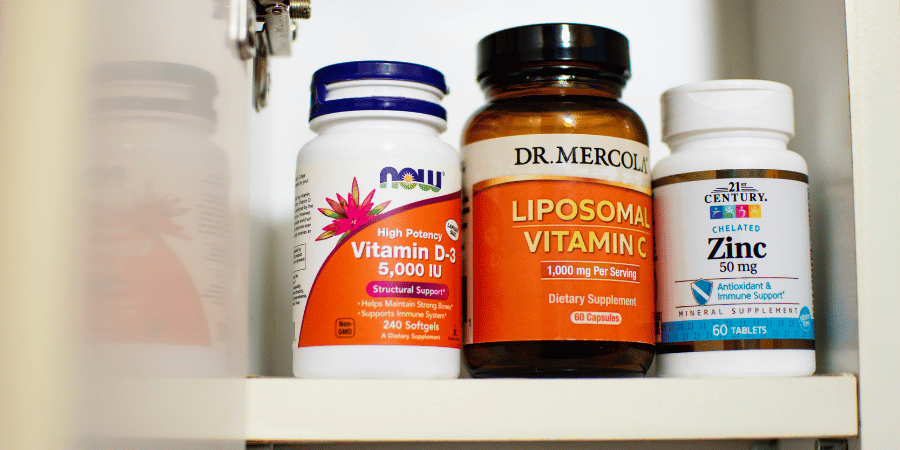
Are you feeling overwhelmed by the endless options of dietary supplements out there? I get it – with so many choices, it can be tough to know where to start. But fear not! In this ultimate guide, we’re going to dive deep into the world of supplements. I’ll be your personal tour guide as we explore the benefits of various supplements and how they can complement your diet and lifestyle.
We’ll also take a closer look at Dr. Gundry’s list of recommended supplements. His insights could help you make more informed choices about your health regimen.
Organic supplements are gaining popularity for their natural, additive-free benefits. We’ll discuss why these might be a good choice for you.
Remember, supplements are not a substitute for a balanced diet. They’re a tool to enhance your health and fill nutritional gaps. Let’s dive in and learn more about these powerful health allies.
Understanding Dietary Supplements

Dietary supplements are products designed to augment your daily intake of nutrients. They come in various forms, including tablets, capsules, powders, and liquids.
Supplements’ main purpose is to fill nutritional gaps. They can provide nutrients that might be missing from your diet. However, they’re not intended to replace food.
Supplements can include vitamins, minerals, herbs, amino acids, and enzymes. Each of these categories serves a unique purpose in supporting your health.
It’s important to note that supplements are regulated differently than drugs. They are not intended to treat, diagnose, prevent, or cure diseases. Instead, they are meant to contribute to overall wellness.
Before starting any supplement regimen, it’s crucial to consult with a healthcare provider. They can help you choose the right supplements based on your individual health needs and goals.
Categories of Supplements

Supplements come in a variety of categories, each with its unique benefits. The most common categories include vitamins, minerals, enzymes, amino acids, and herbs or botanicals.
Vitamins and minerals are essential nutrients that our bodies need to function correctly. Enzymes and amino acids play crucial roles in digestion and protein synthesis. Herbs and botanicals have been used for centuries for their medicinal properties.
Here’s a brief overview of these categories:
- Vitamins: Essential for various bodily functions, including immune support and energy production.
- Minerals: Crucial for bone health, muscle function, and maintaining fluid balance.
- Enzymes: Aid in digestion and metabolic processes.
- Amino Acids: These are the building blocks of proteins that are necessary for growth and repair.
- Herbs/Botanicals: These are used for their medicinal properties and health benefits.
Vitamins
Vitamins are organic compounds that our bodies need in small amounts. They’re essential for average growth, function, and health.
Our bodies need 13 essential vitamins, including vitamins A, C, D, E, K, and B. Each vitamin plays a unique role in maintaining our health.
Minerals
Minerals are inorganic substances that our bodies also need in small amounts. They play a crucial role in various bodily functions.
Essential minerals include calcium, potassium, iron, and zinc. They’re involved in processes such as bone health, fluid balance, and oxygen transport.
Enzymes and Amino Acids
Enzymes are proteins that speed up chemical reactions in our bodies. They play a crucial role in digestion and metabolism.
Amino acids, on the other hand, are the building blocks of proteins. They’re essential for growth, repair, and other bodily functions.
Herbs and Botanicals
Herbs and botanicals have been used for centuries for their health benefits. They’re often used in supplements for their medicinal properties.
Common examples include turmeric for inflammation, echinacea for immune support, and ginseng for energy. However, their effectiveness can vary, and more research is needed in this area.
Dr. Gundry’s List of Recommended Supplements
Dr. Steven Gundry is a renowned cardiologist, best-selling author, and medical researcher. He’s known for his unique approach to health and wellness, which includes a focus on the gut microbiome.
Dr. Gundry believes that certain supplements can help support our health. He emphasizes the importance of choosing high-quality, natural supplements.
Here are some supplements that Dr. Gundry often recommends:
- Vital Reds: A polyphenol-rich supplement designed to boost energy and support digestion.
- PrebioThrive: A prebiotic supplement that promotes a healthy gut microbiome.
- Primal Plants: A green superfood supplement packed with antioxidants.
- ProPlant Complete Shake: A plant-based protein shake that also supports bone and joint health.
Remember, it’s always essential to consult with a healthcare provider before starting any new supplement regimen. This is especially true if you have any pre-existing health conditions or are taking other medications.
The Benefits of Organic Supplements

Organic supplements are gaining popularity, and for good reason. They’re made from natural sources and do not use synthetic additives or chemicals.
These supplements are often gentler on the body. They’re less likely to cause side effects or allergic reactions. Plus, they’re typically easier for our bodies to absorb and utilize.
Organic supplements also align with eco-friendly practices. They’re made in a way that respects the environment, from sourcing to packaging.
So, if you’re looking for a clean, green way to boost your health, consider organic supplements, they’re a natural choice for those who value both their health and the planet.
How to Choose the Right Supplements
Choosing the right supplements can feel daunting. There are so many options, each promising to boost your health in different ways. But don’t worry—we’re here to help.
First, consider your health goals. Are you looking to boost your immune system, improve your digestion, or enhance your energy levels? Your goals will guide your choice of supplements.
Next, do your research. Look into the company behind the supplement. Check if they have third-party testing and certifications. This can give you confidence in the quality of their products.
Also, consider your diet and lifestyle. If you’re vegan, for example, you’ll want to choose supplements that align with this. If you’re an athlete, you might need supplements that support recovery and performance.
Lastly, always consult with a healthcare provider. They can provide personalized advice based on your health history and needs.
Reading Labels and Understanding Ingredients

Reading supplement labels can be confusing. But it’s an essential step in choosing the right supplements.
First, look at the ingredient list. It should be easy to understand and free from artificial additives. If you can’t pronounce an ingredient, it’s probably not natural.
Next, check the serving size and the amount of each ingredient. This will help you understand how much of each nutrient you’re getting.
Lastly, look for any allergen warnings. This is especially important if you have food allergies or sensitivities.
Dosage and Recommended Daily Allowances
Understanding dosage is vital when taking supplements. Too little might not give you the benefits you’re looking for. Too much could lead to side effects.
Most supplements will provide a recommended daily allowance (RDA). This is the average daily level of intake sufficient to meet the nutrient requirements of nearly all healthy individuals.
However, your needs might be different. Factors like age, sex, and health status can affect how much of a nutrient you need. Always consult with a healthcare provider to determine the proper dosage for you.
Interactions and Safety Considerations
Safety should always be a priority when choosing supplements. This includes considering potential interactions with medications or other supplements.
Some supplements can affect how medications work. For example, St. John’s Wort can interfere with the effectiveness of birth control pills.
Some supplements can also interact with each other. For instance, taking iron and calcium together can decrease their absorption.
Always consult with a healthcare provider before starting any new supplement. They can help you understand potential interactions and guide you in safe supplement use.
The Role of Supplements in a Balanced Diet
Supplements can play a key role in a balanced diet. They can help fill nutritional gaps and enhance your overall health. But remember, they’re not a replacement for whole foods.
Whole foods provide a wide range of nutrients. They also offer dietary fiber and other substances that promote health. Supplements can’t replicate all these benefits.
That said, supplements can be helpful in certain situations. For example, if you’re vegan, you might need a B12 supplement. Or if you’re pregnant, you might need extra iron and folic acid.
In conclusion, supplements can complement a balanced diet, but they shouldn’t be the main source of nutrients. Always aim to get most of your nutrients from a variety of whole foods, and consult with a healthcare provider before starting any supplement regimen.
Storing and Managing Your Supplements

Proper storage is crucial to maintain the efficacy of your supplements. Most supplements should be stored in a cool, dry place. Avoid storing them in humid areas like the bathroom or kitchen.
Some supplements, like probiotics, may need refrigeration. Always check the label for specific storage instructions. Remember to keep supplements out of reach for children.
Lastly, manage your supplements effectively. Keep track of their expiration dates. And remember, taking expired supplements is not recommended. They may not be as effective and could potentially cause harm. Always aim to use supplements before their expiration date.
Conclusion: Integrating Supplements into Your Health Routine
Incorporating supplements into your health routine can be a game-changer. They can fill nutritional gaps and support overall wellness. But remember, they’re not a substitute for a balanced diet and healthy lifestyle.
Choosing the right supplements can be overwhelming. But with the right knowledge and guidance, it becomes easier. Always consult with a healthcare provider before starting any supplement regimen.
In the end, the goal is to enhance your health. So, take a holistic approach. Consider your diet, lifestyle, and unique health needs. And remember, your journey to wellness is a marathon, not a sprint.
